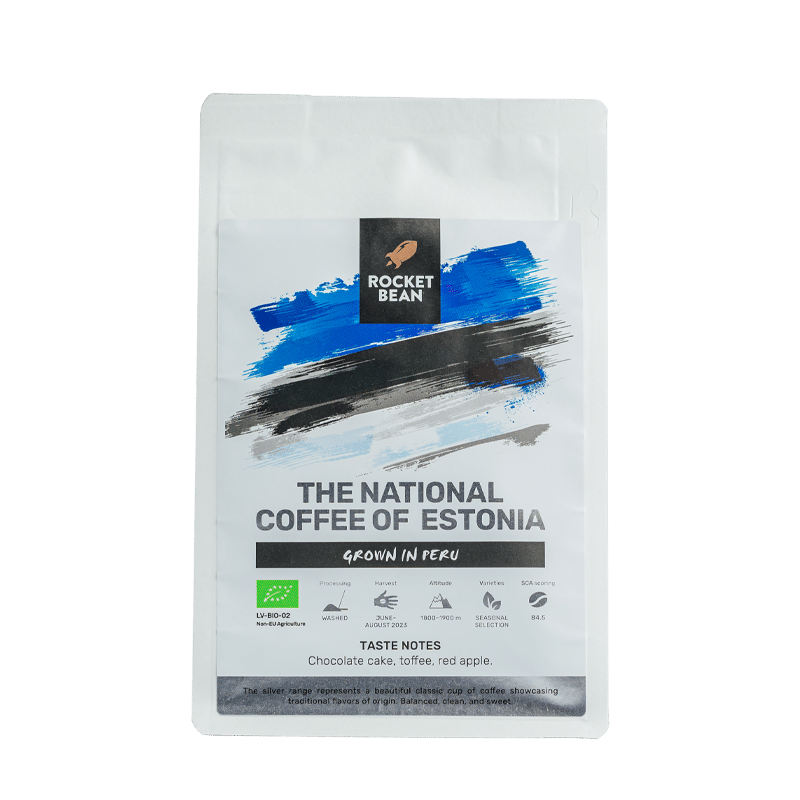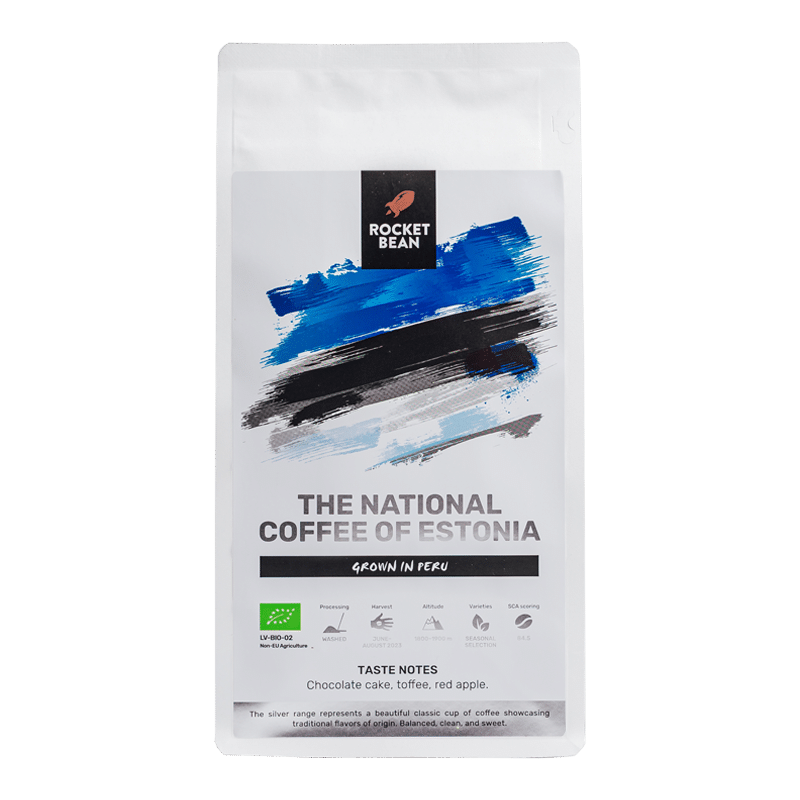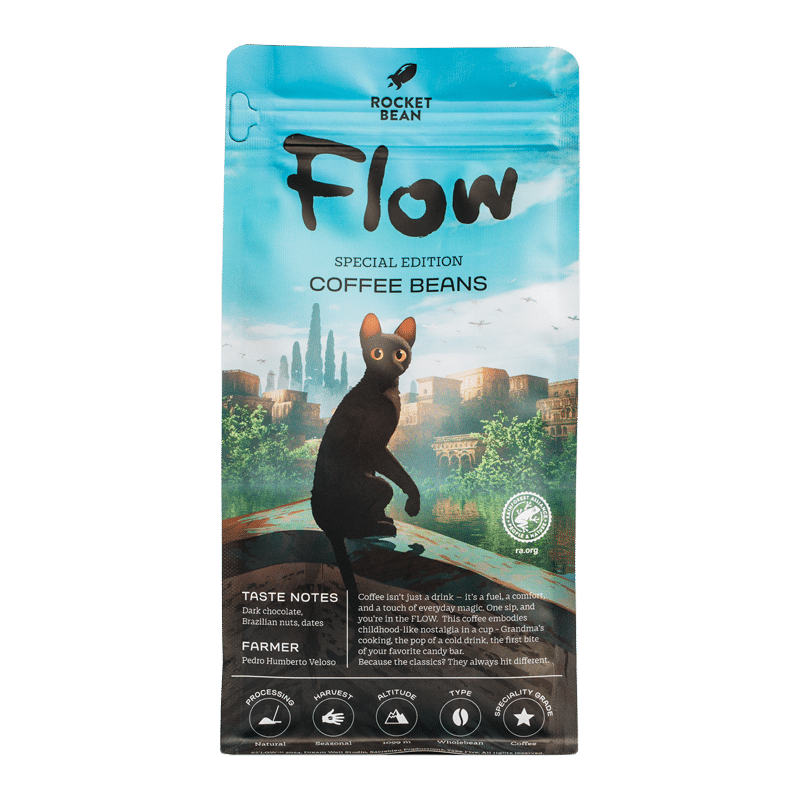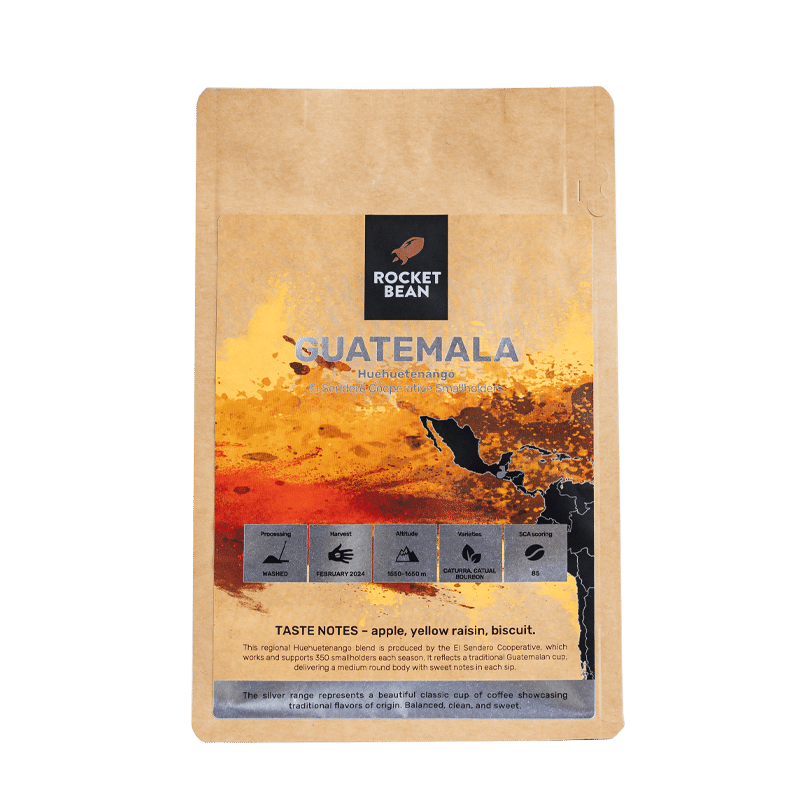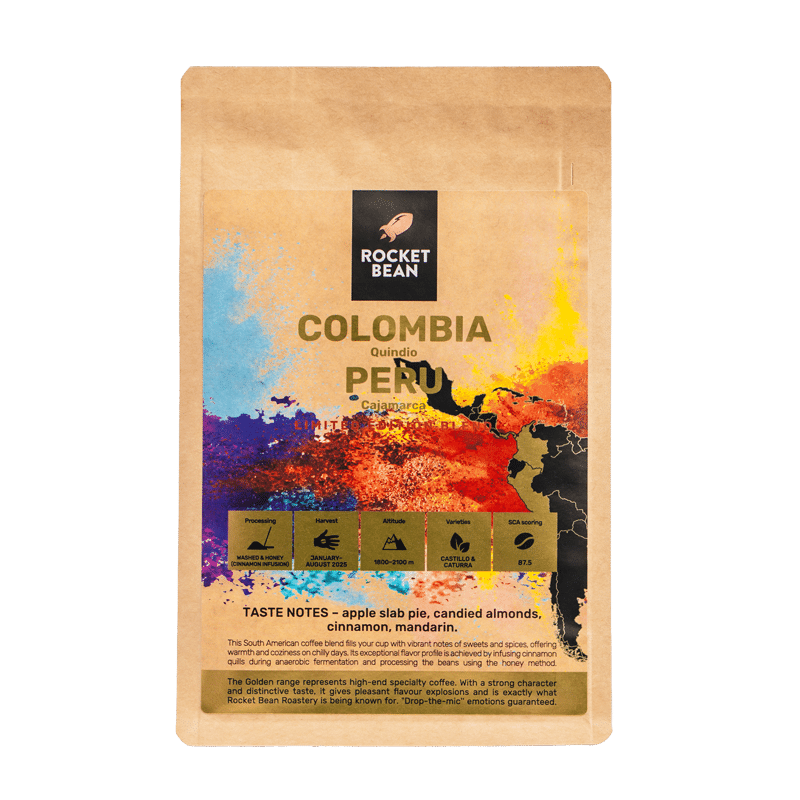The National Coffee of Estonia | Peru, Washed, Organic
OMNI: Filter, Espresso
- Country: Peru
- Region: Cajamarca, Jean
- Producers: Ande Peruanos association smallholders
- Taste and Arome: Chocolate cake, toffee, red apples
11,00 €
Processing
Washed
Altitude
1800 - 1900 m
Variety
Seasonal selection
Scoring
84.5
This coffee is certified organic, and everyone involved in the process of ESTONIA is roasted with utmost care in Riga, Rocket Bean Roastery! Enjoy!
Peru
Peru is known for producing some of the finest coffee in the world, with a reputation built due to the unique geographic and climatic advantages of this origin. One of the key elements in this origin coffee’s outstanding cup profile is the Peruvian Andes Mountains. The high altitudes, ranging up to 2200 meters, slow the maturation of coffee cherries, which helps enrich coffee’s overall taste profile. Additionally, the volcanic soil in these regions infuses the coffee with distinctive tastes, while the cool temperatures and shade-grown methods help to minimize pests and bolster sustainable farming practices. These unique conditions create Peruvian coffee that is distinctive with intricate flavour profiles, bright acidity, and floral undertones. Coffee cultivation in Peru dates back to the mid-18th century when Spanish colonists first introduced coffee plants. Over time, coffee farming has become a cornerstone of the local economy, particularly in the high-altitude areas of this origin.
Ande Peruanos Association
The Ande Peruanos Coffee Producers Association is a non-profit social enterprise established in 2020 in Jaén. The association provides agricultural services for coffee farmers to increase their economic income and quality of life while contributing to the sustainability of coffee cultivation areas and the broader environment. They provide training in environmentally friendly crop management practices that sustain soil, water, flora, and fauna. By the end of 2023, the association had 260 members in the provinces of Jaén, San Ignacio, and Utcubamba. The association aims to build strong, lasting relationships with its members, customers, and collaborators based on shared values of responsibility, honesty, equality, and commitment.
Processing
Ripe cherries are selectively harvested and stored in containers before processing. Then the pulp is removed with mechanical depulpers that separate beans from the cherries. After this process, all pulps are deposited in fermentation tanks to make organic fertilizer. When the lot is depulped, coffee beans are then placed in water tanks and fermented from 12 to 24 hours, depending on the altitudes of the production plots. After fermentation beans are removed from the tanks and washed so that remaining mucilage is removed. Then coffee is dried in so-called solar dryers, avoiding the contamination of the beans by external factors that can affect coffee. This step takes around 6 days for beans to dry and reach 11-12% moisture so that they can be transferred for storage. Beans are hulled and packed in 69 kg bags a few days before they are transported to port.
